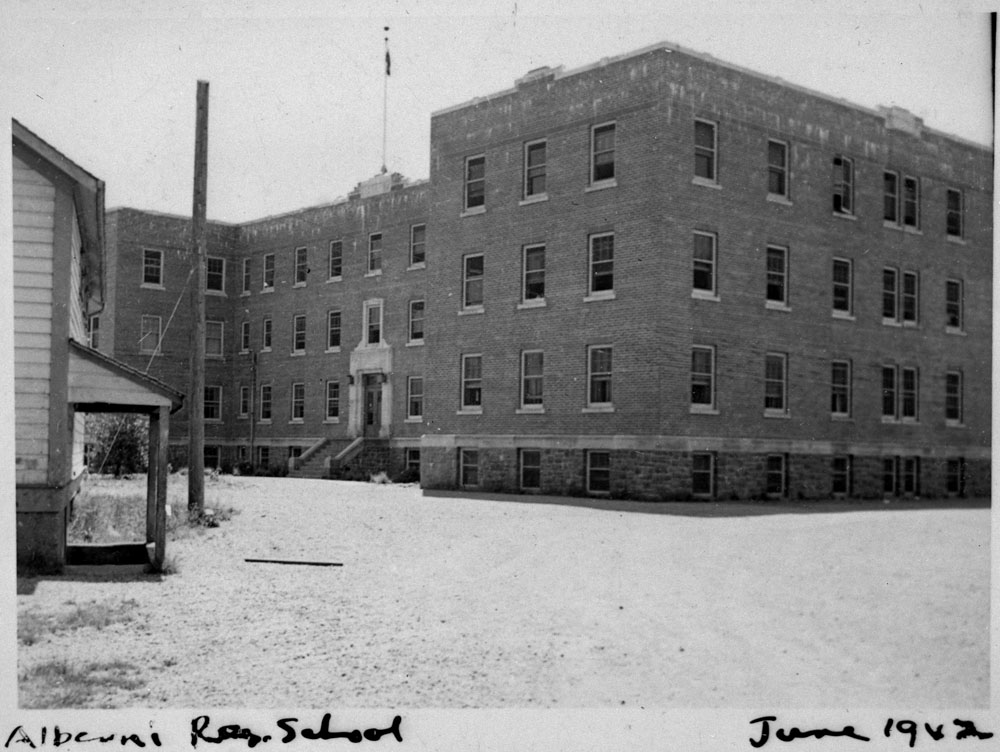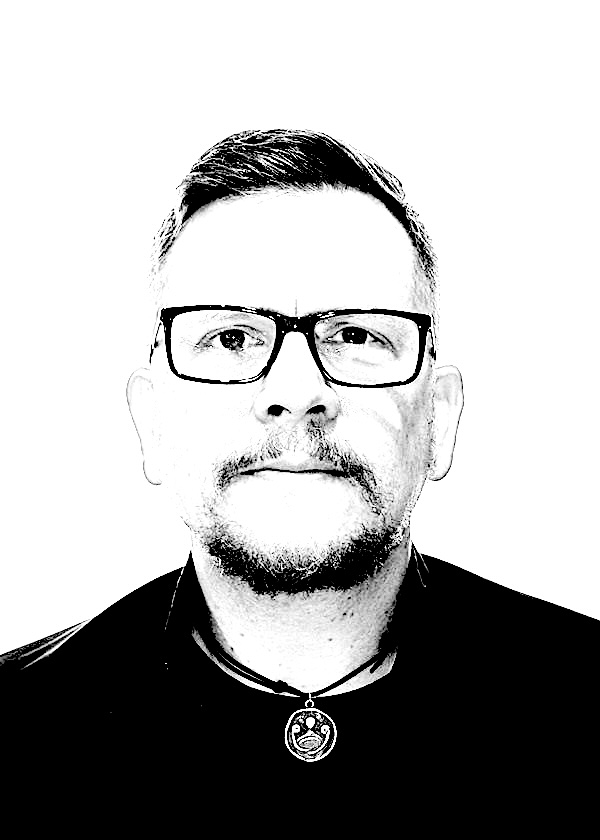This apology, comes from my participation in the ?aps ciik cha chim hiy ap / Road to Reconciliation / Making it Right group in Port Alberni, BC.
The non-indigenous United Church church planter, Sarah Williams of Courageous Community took 11 pages of notes in a day-long meeting of survivors of the Alberni Indian Residential ‘School’ who were asking for renewed apologies from the church.
The notes were taken was a meeting that she and I were the only settlers invited to be present at. Sarah’s notes, based on the words of the survivors, form the basis of the language of this apology.
After drafting an early version of this, I sent the draft to other settlers engaged in decolonizing work, including Sarah, the Rev. Ingrid Brown and Denise Nadeau, whose excellent book Unsettling Spirit on decolonisation is a must-read. I’m not saying that any or all of these folk endorse this language or apology, but all offered important feedback.
After that first meeting, a group of more survivors, about 10 in total, had several more meetings with this draft to consider the language and gave me back this final draft.
Neither I nor the survivors are under the illusion that this represents the views of their Nations nor of all survivors. You’ll see in the footnotes that there is some disagreement, even in this relatively small group, around the term ‘genocidal’.
Even still, this is a broken attempt to continue this work of owning the harm and committing to change. I’m grateful to ALL the survivors who participated. I’m deeply honoured to have been part of this.
I should note that the initial hope of the survivors was that this apology would be a wider one than from one person. In this respect, I know that the national United Church is doing its own work prompted from this gathering.
Even as the UCC does that work, I feel it is important to not lose the specific language and approach the survivors requested from me/us, and I therefore publish this as a personal apology and commitment as minister in The United Church of Canada and as a settler Christian who benefits from the colonial project my church was and is involved in.
The only changes that I have made to their final draft are to change the language from “we” to “I” and to remove some language that would imply that this is an apology from a group any larger than me alone.
I would invite all who benefit from the colonial project of their spiritual institutions to consider how they might engage survivors to shape their own apologies and commitments, either for themselves or on behalf of your community of faith, congregation or regional body.
STRONG Content Warning: This document explicitly names violence and other atrocities experienced by attendees of Residential institutions and their families and communities. Support is available for anyone affected by the lingering effects of residential schools, and those who are triggered by the latest reports. A national Indian Residential School Crisis Line has also been set up to provide support for former students and those affected. People can access emotional and crisis referral services by calling the 24-hour national crisis line: 1-866-925-4419.

MY APOLOGY AND COMMITMENT
This apology and commitment was written at the request of a number of the survivors of the Alberni Indian Residential School’[1] which was run by The United Church of Canada (and others) and which closed in 1973.
The language in this apology has been informed and approved by members of the Indian Residential School Survivors Group and survivor participants in the ?APS CIIK CHA CHIM HIY APS (Road to Reconciliation) group; both groups involve survivors from many Nuu-chah-nulth and other Indigenous survivors who meet regularly in the Tseshaht and Hupačasath Nations (Port Alberni, BC).
***
To the intergenerational survivors of “Indian” Residential “Schools”
- As a minister in The United Church of Canada on Turtle Island, I begin my apology by saying that I believe you, the survivors, who attended these institutions. I confess and apologize for when I did not believe or was not willing to hear about the horrors of your experiences. I commit, when invited by you, to work with you to create spaces for settlers to listen to the experiences of intergenerational survivors and families.[2]
- I apologize for the kidnapping, murder, and incineration of fetuses, babies, and children; for improper burials and lack of funeral ceremonies which occurred at our church-run residential institutions.[3] I commit, when invited, to support Indigenous communities to the best of my abilities and toward further revealing of what happened and to work toward healing.
- I apologize for how my people stole your lands and used them as something to be bought and sold, even as we tried to diminish your ways of caring for animals, lands, skies, and waters. I commit to decolonizing my view of land and ownership, and to care for the earth and all creatures, especially in this time of ecological crisis. I commit to move toward ways of returning or sharing land and goods more equitably with those Nations from whom it was stolen – and with all people.[4]
- I apologize for the sexual, cultural, emotional, medical, psychological, spiritual, and physical violence that happened in the institutions I am connected with -and which continues to wreak havoc in Indigenous communities, individuals, and families through external and lateral (internal) violence. I hear and believe you when you speak of addiction, rape, assault, overdose, the removal of children from families and communities, and suicide directly resulting from our residential institutions. I commit to not blaming you. I commit to concrete actions that support the healing of individuals, families, communities, and Nations on your own terms, in your own ways, for the reclamation or repair of what has been violated, broken, or lost.
- I apologize that our forebears used my beloved spiritual tradition, Christianity, as a weapon of fear. I commit, when invited, to support you in the reclamation of your ways, including spiritualities, languages, and cultures through our prayers, resources, and actions. I commit to seeking right relationship with Indigenous folk of all spiritual, traditional, and religious persuasions. I commit to engaging Christianity as a way of compassion, healing, and love and not one of fear, colonization, wall-building, nationalism, and/or coercion.
- I apologize for actions that my church participated in which were part of a project of genocide[5]. I commit to ongoing education of myself and my communities of faith about white supremacy and patriarchy[6] and to using our privilege to stop the ongoing harm that is being done by the actions and inactions of colonial institutions[7], including The United Church of Canada, of which I am a minister. I do not expect you to educate me or us, yet am grateful when I/we learn from you. I commit to moving from guilt and paralysis or abstract programs or empty words into constructive and creative collaboration for justice and healing.
- Above all, I apologize that we did not love you as we were called to love. I commit myself anew to love. In doing so, I hope to listen and build trust in order to foster a better future for your Nations and communities and for your healing, for our healing and for healing of all peoples, and of the earth.
I am fully aware that these words are not enough. I commit myself to concrete actions.
I lament, I grieve, I weep at what my church has done, longing for right relationship with you.
I know that this harm will take generations to heal and will involve relational, structural and spiritual change.
I commit myself to this journey.
[1] More details about the school can be found here https://thechildrenremembered.ca/school-histories/alberni/
[2] There is one template for the creation of such a group in your local United Church context based on the work done in Port Alberni in the monthly ?APS CIIK CHA CHIM HIY APS group can be obtained by emailing rob@robshearer.org
[3] The survivors felt strongly that these actions should be named in detail. These burials and incinerations have been spoken about for decades in Indigenous communities. Atrocities such as these were brought to a wider public awareness in the past years.
[4] Survivors mentioned the Land Back movement – see https://davidsuzuki.org/what-you-can-do/what-is-land-back/ – and other comparable movements toward reparation, return or sharing of land.
[5] The vast majority of the survivors felt strongly that the word ‘genocide’ should be included in this statement. One or two felt it could alienate people and were more resistant. For more on this point of view of the Residental Schools as genocide, please see https://humanrights.ca/news/confronting-genocide-canada
[6] Survivors have constantly drawn the connections between colonialism, white supremacy, ecological destruction and patriarchy. They have noted missing and murdered indigenous women, girls and two-spirited people – see https://en.wikipedia.org/wiki/Missing_and_Murdered_Indigenous_Women.
[7] The survivors have named the police, children’s aid, the Canadian government – and others – alongside the churches – as colonial institutions which continue to cause harm.
